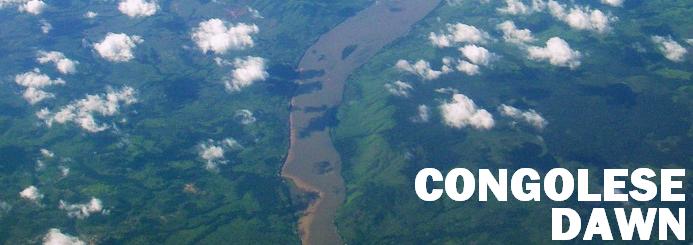A dark, bloody, war stricken and diseased continent is what so often occupies our minds when we think of Africa. Even Tim Butcher's new book 'Blood River', in conjunction with his unfortunate name, gives the impression of never ending pointless violence. Whilst one must not neglect the tragic history of many African countries, this so often implies a neutral passivity of the conflicts which removes any sense of responsibility from the West.
This was particularly highlighted for me in a study of the international media's coverage of the Bosnian War and the Rwandan genocide which occurred during the same time frame. Needless to say that one could immediately see the difference in the amount of coverage in favour of the Bosnian conflict in our back yard. Yet the most shocking was looking at how starkingly different the type of language used to describe conflicts, which were essentially two ethnically motivated civil wars. With regard to Rwanda, the genocide (or acts of genocide as we liked to call it), frequently used phrases such as 'never ending African blood baths', 'orgy's of animalist killing', 'brutal butchering' and 'animal-like killings'. By contrast, the language used to describe the Bosnian conflict was inevitably phrases such as 'clean cross fire', 'strategic collateral damage' and 'strategic air campaigns'. Evidentally, the latter sounds cleaner, more modern, more humane, more white. Yes more white. That is the issue. Yes Rwandans did set against each other, neighbour against neighbour, using whatever they could find. However, I'm sure they would have used 'strategic collate bombing campaigns' if they had the means to do so. Moreover, who propped up the resented Tutsi regime which was so hated and led to the awful killings? I know I seem trite, but the point is that it is still killing. Essentially its the same. Africans aren't more bloody than anyone else, let me remind you how bloody our history has been, we had the hundred years war, the crusades, oh and Bush's latest mission in the middle east, to name but a few. Indeed, we in the West, the decendents of our imperial history have been the generations guilty of the worst evil ever; to be aware of our past injustices and yet still continue to act in ways which further the fatal consequences.
The Africa I know is one of joy, love, faith and hope. It is not a passive victim embroiled in continuous 'orgies of blood'. Yes it is scarred and still hurting very deeply in many places. But it is not all dark and hopeless as our media would like us to believe. Would it be too much to suggest that this may be because if it is seen as a pointless and hopeless continent then we have no pressing responsibility to do anything? Charity begins at home after all. No, the Africa I know, and I should hasten to add that I am not claiming to be an expert by any means, is full of people just like you and me trying their very hardest, in circumstances which we can't even imagine, through no fault of thier own, to make ends meet and live.
On thursday I am holding debate entitled 'Colonialisation and Democracy: A Reality?'. Focusing particularly on the cases of Kenya and Zimbabwe I have been reminded of the complexity of the context in which 'democracy' is expected to work, as if it is something you can simply do over night, like the ever frequent cabinet reshuffles of the New Labour government and hope its going to all OK. I will be interested to hear what the experts have to say. Surely encouraging democracy and in particular civic right education is surely needed if countries are going to be able to develop? But on the other hand are we expecting too much to soon? How much time does a political culture of pluralism take to emerge? Indeed, what makes us think we have the ultimate answer, how any of us think our democractic government has it right?
The Democratic Republic of Congo in the heart of the African continent has had it bad. In the eastern provinces of Kivu, the country is still burdened by an ongoing conflict no doubt fuelled by the fact that it is is one of the most resource rich regions in the world. Another tragic irony in African history; it should be, if left to its own devices, among the richest countries in the world. Yet, as we visit Christian Aid partners in the coming weeks I am eager to be back on African soil and meet people, who by accident of birth are so much less fortunate than myself, but stripped bare of western comforts, can see the world as it should be. Where family and community isn't an added extra to your starbucks coffee but an essential part of what life is. To quote Martin John Nichols, a singer song writer, I yearn to 'see the world through the poor's eyes'. The way God sees it.
Monday, 20 October 2008
Subscribe to:
Post Comments (Atom)




No comments:
Post a Comment